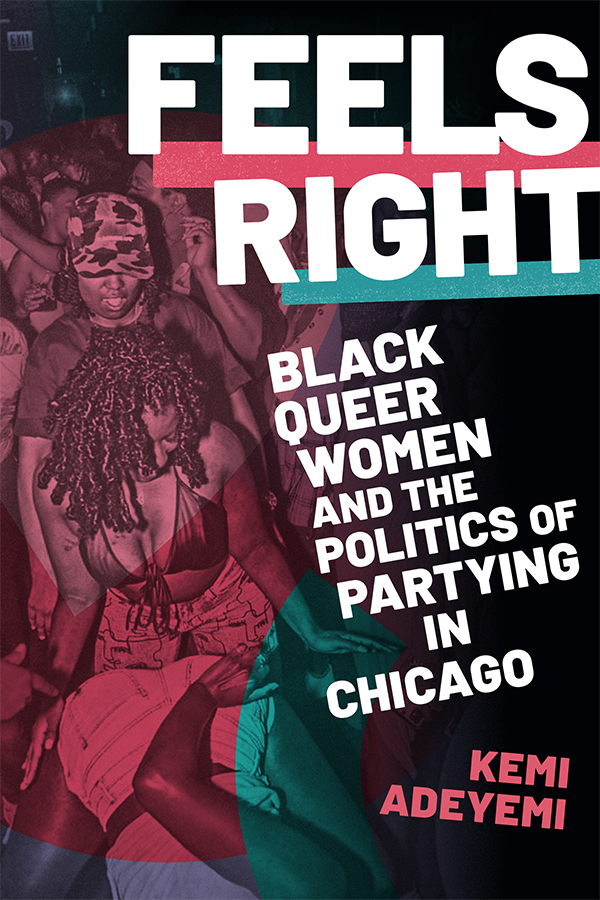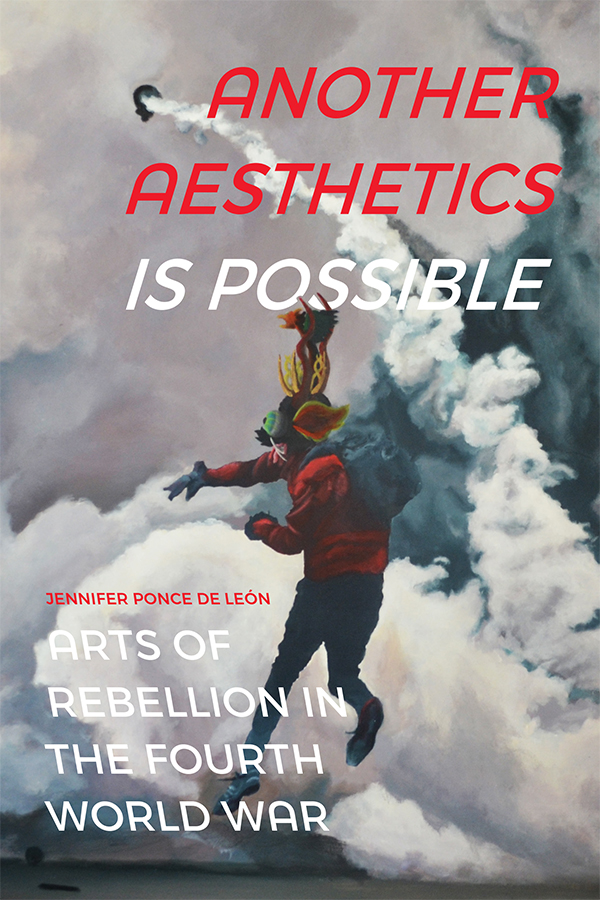This article attempts to offer a systemic discussion about the paradigm shift away from the neoliberal Washington consensus and its ramifications for the worlds of performing and visual arts. The article first provides an overview of discussions of political economy in the arts, in which the typically speculative arguments are contrasted with sociological and historical knowledge which reveals a limit to them. The article then describes contemporary political economy in the era of post-globalization and makes a few proposals on how the arts can think through it.
Keyword: neoliberalism
Young People’s Self-Making in Neoliberal Capitalism: Challenges and Opportunities
This paper charts the development of young people’s self-making in neoliberal capitalism, specifying relationships between their self-making and susceptibility to mental health difficulties as they make their way in neoliberal market society. While neoliberal capitalism provides young people with opportunities to pursue and experiment with diverse identities and ways of being in the world, it also structures their self-making opportunities, by which charting selfhood becomes fertile ground for internalizing mental health problems. Our paper argues that the cultural imperative on young people to attain social status and success in the competitive and achievement-oriented forms of life that inhabit neoliberal capitalism demands that they curate and commodify highly desirable forms of selfhood that can never quite be realized. Endlessly failing to satisfy the conditions of selfhood in neoliberal capitalism, exhausted by the injunction to be more than they have already achieved, young people are socialized into increasingly complex and pressurized neoliberal capitalist cultures which challenge their ability to fulfill both their extrinsic desires for status and identity enhancement and their intrinsic needs for relatedness, belongingness, and self-worth. To conclude our paper, we summarize our main arguments and make some recommendations for promoting a more beneficial relationship between young people and the culture of neoliberal capitalism.
Review of Feels Right: Black Queer Women and the Politics of Partying in Chicago by Kemi Adeyemi (Duke University Press)
Following the movements of Black queer women on queer dance floors in Chicago, Kemi Adeyemi shows how race, feeling, and the geography of the neoliberal city are spatially entangled. Black queer women’s moves on the dance floor reveal, navigate, bend, and upset those entanglements that overdetermine their rights to feel, to belong, and to take place in the city. Black queer women do not dance to escape the realities of their everyday lives. Rather, they dance for moments where they can collectively reimagine, redefine, and reclaim their rights to feel good, their rights to take place in the neighborhoods where they are not “supposed to” take place, and ultimately, their rights to the city.
Review of The Digitally Disposed: Racial Capitalism and the Informatics of Value by Seb Franklin (University of Minnesota Press)
The Digitally Disposed: Racial Capitalism and the Informatics of Value examines the convergence between the recursive function of value in capitalist economies and the functions of abstraction, ascription, and disposal that govern digital systems. Franklin argues that digitality’s most pernicious effects are apparent in how digital systems create the illusion of frictionlessness, connectivity, and access, while at the same time working to reinforce a logic of exclusion that externalizes the material realities of depletion. Participation in value-mediated social relations has become mandatory due to the global reach and ubiquitous extension of the informational and economic systems under which workers labor. Race and gender are social categories which position marginalized workers, especially workers from the Global South, as unreliable components in the system, the digitally disposed. Franklin argues, using the study of communication systems, that this positioning is not a flaw of the system, but is rather the intentional effect of forms of capitalist accumulation that depend on the precarity of the lives of those who generate the labor that the system depends on. A valuable contribution to the study of digitality, neoliberalism, political economy, racial capitalism, and technological history, this work shows that the social effects of digitality are not new, but rather are an intensification of the exclusions and forms of marginalization upon which capitalism depends.
Review of Fates of the Performative: From the Linguistic Turn to the New Materialism by Jeffrey T. Nealon (University of Minnesota Press)
Jeffrey T. Nealon’s Fates of the Performative: From the Linguistic Turn to the New Materialism crafts a history of performativity within contemporary theoretical thought. Through the structure of a genealogy, Nealon examines the nascence of performativity and its intersection with biopolitics and neoliberalism to predict not only the future of the performative, but also to imagine new avenues of criticism within the humanities.
Review of Another Aesthetics is Possible: Arts of Rebellion in the Fourth World War by Jennifer Ponce de León (Duke University Press)
In Another Aesthetics is Possible, Jennifer Ponce de León looks at recent aesthetic practices in Argentina, Mexico, and the United States that shift the commonsense of history, space, and violence in order to usher in an anticapitalist and anticolonial world. With an expansive archive and a method that combines interviews, journalism, and close formal readings of art–activist practices, Ponce de León demonstrates the importance of aesthetics—and of aesthetic criticism—for making another world possible.
Crip Collectivity Beyond Neoliberalism in Octavia Butler’s Parable of the Sower
The importance of Octavia Butler’s 1993 novel Parable of the Sower continues to crystalize, as Butler’s prescient imagining of urban California torn apart by neoliberal divestment comes to fruition. Following in the space opened up by Black feminist scholarship on Butler, the present essay examines her relevance beyond literary and cultural studies. I argue that Parable is a Black feminist crip theorization of political economy that diagnoses the disabling conditions of precarity under neoliberalism and also prescribes collectivity for crip and mad survival. Neoliberalism describes a global stage of advanced capitalism wherein governments are both incentivized and disciplined into enforcing economic policies that include privatization, deregulation, and market liberalization. As Jodi Melamed defines it, neoliberalism requires a certain kind of political governance, that puts the interests of business over the well-being of people (2011). Neoliberal governance engenders what I call “disabling contradictions,” yet the blame for conditions of precarity is deflected onto bodyminds themselves. In Parable of the Sower, Butler theorizes these disabling contradictions of neoliberal governance under advanced capitalism, drawing into focus the political economic systems that cause suffering. Parable also depicts strategies for crip and mad survival that are made possible through the conscious creation of community and networks of solidarity that counter the neoliberal state’s devaluation of bodyminds. Gathering to read and discuss the novel, rather than a distraction from the crises, furthers the emergence of crip and mad collectivities. As such, it is an urgent and timely practice for building futures for crip and mad people.
Review of I’m Not Like Everybody Else: Biopolitics, Neoliberalism, and American Popular Music by Jeffrey Nealon (University of Nebraska Press)
In I’m Not Like Everybody Else, Nealon is not like everybody else (i.e., a poptimist), but rather dissects the position of popular music in American society and culture in the present moment. The title of the book comes from a performance by Ray Davies (former singer for the Kinks) at the Austin City Limits Music Festival in 2006. In a YouTube video of the performance, Nealon notes that when “the song’s titling chorus returns, the hipster ‘Keep Austin Weird’ audience is shown, all in unison, chanting ‘I’m Not Like Everybody Else.'”(68) It is in this example that he sees “the mass individuality logic of biopolitics in one concise screenshot: I’m ironically just like everybody else in and through my axiomatic self-assurance that I’m not like everybody else.” (68) This passage perfectly sums up Nealon’s thesis: through a capitalism that aims to make everyone a mass individual, people reaffirm their identity “not” being like everyone else, while at the same time failing to produce their identity positively.
Manifestations of Microfascism in Spatial Dimensions: A Study on Mumbai’s Public Spaces
Mumbai has an identity that is built around its multicultural, multi-ethnic population, with an enterprising community that prides itself on its resilient spirit. The pluralism that marks the city’s social spaces remained powerful for decades resulting in an immigrant population from all over the country finding its home in this city. When Bombay was renamed Mumbai, it was also a reflection of the altered social sensibilities and the manifestation of an exclusionary politics which began to get reflected in the public spaces of Mumbai. Post globalization and economic liberalization, a hegemonic shift in power centers brought about further negotiations with identities and social spaces, with the new cityscape evolving steadily. The pervasive presence of the politics of othering that marks the contemporary Indian political sphere has its presence felt in Mumbai’s public spaces. The rapid gentrification and erasure of the poor from the public spaces, the expanding privately-owned public spaces and the social interactions that mark the new global city of Mumbai unfold the hegemonic power relations of the new India. This article attempts to imagine the new social narratives and cartographies within the theoretical framework of microfascism as elaborated by Deleuze and Guattari. Mumbai’s public spaces are closely observed and analyzed to comprehend the new dynamics of power at work and its political and social ramifications in relation to the rest of the nation. This paper also seeks to look at the patterns of dissent evolving out of the microfascist spaces of Mumbai.
Review of Prison Land: Mapping Carceral Power Across Neoliberal America by Brett Story (University of Minnesota Press)
Brett Story’s Prison Land: Mapping Carceral Power Across Neoliberal America offers a timely reflection on the role of mass incarceration in remaking the neoliberal contours of contemporary U.S. culture. Working within the traditions of critical prison studies and structural critiques of neoliberalism, Story offers detailed portraits of a number of landscapes shaped by the logic of mass incarceration. She persuasively argues that the work of prison abolitionism must also encompass the deeper structural projects of abolishing racism and other injustices in society at large. This book is best read alongside the documentary, The Prison in Twelve Landscapes (2016), by the same author.
Review of Crip Times: Disability, Globalization, and Resistance by Robert McRuer (NYU Press)
In his new book Crip Times: Disability, Globalization, and Resistance, Robert McRuer offers his notion of “crip time” as an analytic through which we may critique the spatio-temporalities of austerity, late capitalism, and the cultural logic of neoliberalism. McRuer’s position is that disability is at the core of a global politics of austerity and of neoliberalism. What does it mean that disability is central to a global politics of austerity? For McRuer, it means that thinking about austerity through “crip time” can highlight an ongoing politics of representation of disability. That is, neoliberalism actively produces certain ways of being disabled that are conducive to its continued operation. But, “crip time” points to the ways in which this politics of representation does not fully capture disability. Disability exceeds austerity and neoliberalism. Crip Times, then, offers a critical examination of how disability is represented within the cultural logic of neoliberalism. At the same time, McRuer cautions against, as some past projects in disability and queer theory have done, fully rejecting or embracing the politics of identity, representation, and rights.
Review of Rated Agency: Investee Politics in a Speculative Age by Michel Feher (Zone Books)
Michel Feher’s new book “Rated Agency: Investee Politics in a Speculative Age” offers both critical evaluations and political discussions of the existing socio-economic theories about the dynamics of capitalism in the past half-century and the possible alternative directions current capitalism could take. Feher argues that whether we are a company in search of funding from shareholders, an indebted public authority seeking bondholders, or an instrumentally precarious individual in need of social benefits, we would all be subject to the issue of accreditation and indebtedness, in which being an investee is more appreciated in an age in which investors have become all-powerful.
How Makers and Preppers Converge in Premodern and Post-Apocalyptic Ruin
This article investigates how US maker culture affirms values of self-reliance and personal responsibility through its increasing convergence with future-oriented preparation in order to construct a US maker identity differentiated from other making cultures worldwide as an ideological project of white American exceptionalism. I argue that the convergence of contemporary making with apocalyptic preparation in the US articulates making practices as vital for individual survival for apocalyptic futures as well as constructs nonwhite and non-Western geographies as simultaneously premodern and post-apocalyptic sites of ruin. US maker culture, while drawing inspiration from these geographies, suggests that such locales will be unaffected by apocalypse and, thus, cannot prepare for it. Consequently, US maker culture excludes the nonwhite inhabitants of these non-Western geographies from the idealized subjecthood rooted in the do-it-yourself (DIY) ideology and preparatory logic that maker culture endorses.
License to Extract: How Louisiana’s Master Plan for a Sustainable Coast is Sinking It
This article explores the deployment of Louisiana’s highly touted $50 billion, fifty-year Master Plan for a Sustainable Coast, which is often characterized as saving Louisiana’s Working Coast of disappearing marshlands that are home to several major industry sectors, along with migratory flyways, seafood estuaries, and two million residents. As a concept, the Working Coast attempts to signify the importance of Louisiana’s coastal zone to the nation’s economy in order to justify expensive restoration projects. By complicating the euphemism and the extractive logic it signifies, I hope to show that the state’s current approach to slow the disappearance of its coastline in fact rationalizes the very practices sinking it. The Working Coast reifies the state’s fragile marshlands through metrics that can only be realized through continued extraction.
Review of Death beyond Disavowal: The Impossible Politics of Difference by Grace Kyungwon Hong (University of Minnesota Press)
As social issue fatigue threatens to isolate even the most robust justice scholars and activists, Hong asks us to hold our contemporary complexities in unresolved tension. She invites us back to the table, asking us to attend to how our lives and others’ deaths are related and to how neoliberalism works to redefine, and obfuscate, these connections. To understand how racialized, sexualized, and gendered differences are produced, Hong argues that exploring death, as well as the work of neoliberal technologies to erase marginalized memories of death, reveals the uneven distribution of precarity and violence. The book will benefit any seminar or study that seeks to parse the tangled complexity of contemporary oppressions in and through U.S. American political structures, as well as any who seek an exemplar of how to do so with academic rigor, exceptional feminist citation practices, and ethical elegance.













